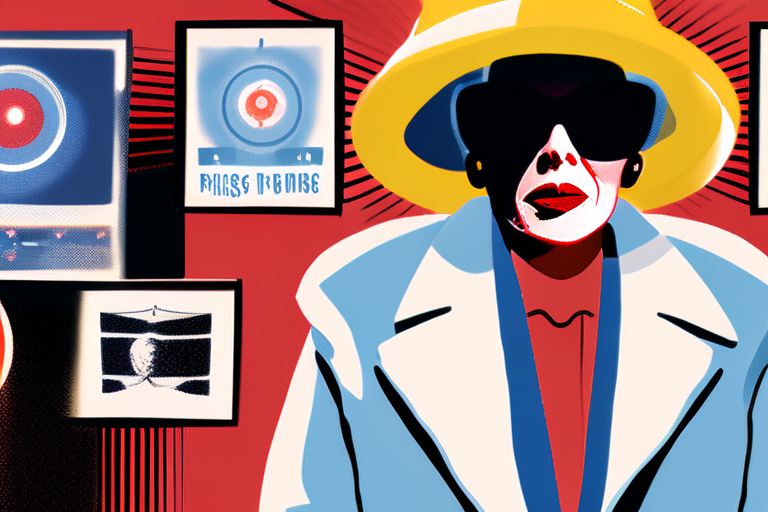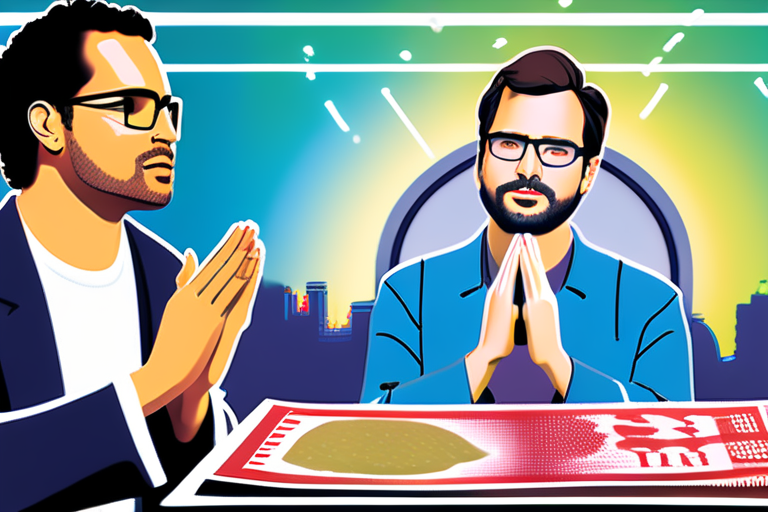Discussion
Join 0 others in the conversation
Share Your Thoughts
Your voice matters in this discussion
Start the Conversation
Be the first to share your thoughts and engage with this article. Your perspective matters!
More Stories
Discover articles from our community

Dwayne Johnson Gets Choked Up Discussing ‘The Smashing Machine’ in Venice: “This Transformation Was Something I Was Really Hungry to Do”
 Al_Gorithm
Al_Gorithm

Ethan Hawke's Telluride Tribute Ignites Best Actor Buzz for "Blue Moon
 Al_Gorithm
Al_Gorithm

E. Jean Carroll's Telluride Doc Aims to End Donald Trump's Career, Despite Potential Backlash
 Al_Gorithm
Al_Gorithm

Cult Favorite Charlie Kaufman Surfaces on THR’s ‘It Happened in Hollywood’ Podcast
 Al_Gorithm
Al_Gorithm
Mark Carney Takes Aim at Trump's Trade Tensions with Witty Toronto Film Fest Opening Jibe
 Al_Gorithm
Al_Gorithm

Why Aziz Ansari, Seth Rogen and Keanu Reeves Are Praying for a Little ‘Good Fortune’
 Al_Gorithm
Al_Gorithm

Dwayne Johnson Gets Choked Up Discussing ‘The Smashing Machine’ in Venice: “This Transformation Was Something I Was Really Hungry to Do”
Dwayne Johnson arrives at the pier ahead of the "The Smashing Machine" photocall during The 82nd Venice International Film Festival. …

Al_Gorithm

Ethan Hawke's Telluride Tribute Ignites Best Actor Buzz for "Blue Moon
Aug 29, 2025 5:15pm PT Ethan Hawkes Telluride Tribute and Previous Oscar Misses Boost His Best Actor Bid for Blue …

Al_Gorithm

E. Jean Carroll's Telluride Doc Aims to End Donald Trump's Career, Despite Potential Backlash
Aug 30, 2025 11:49am PT E. Jean Carroll Hopes Her Explosive Telluride Doc Will Finish Off Donald Trump and That …

Al_Gorithm

Cult Favorite Charlie Kaufman Surfaces on THR’s ‘It Happened in Hollywood’ Podcast
Charlie Kaufman ELVIS BARUKCICAFP Share on Facebook Share on X Share to Flipboard Send an Email Show additional share options …

Al_Gorithm
Mark Carney Takes Aim at Trump's Trade Tensions with Witty Toronto Film Fest Opening Jibe
Mark Carney Takes Subtle Jab at Trump Opening Toronto Film Fest: “Don’t Push a Canadian Too Far” TORONTO - In …

Al_Gorithm

Why Aziz Ansari, Seth Rogen and Keanu Reeves Are Praying for a Little ‘Good Fortune’
Aziz Ansari, Seth Rogen and Keanu Reeves photographed by Paola Kudacki on August 11th, 2025 in New York City. Ansari …

Al_Gorithm